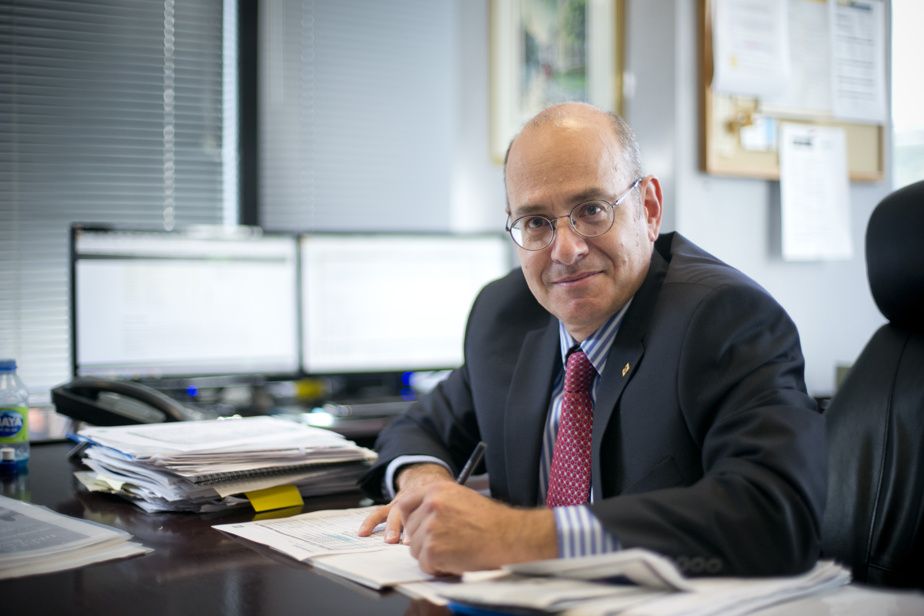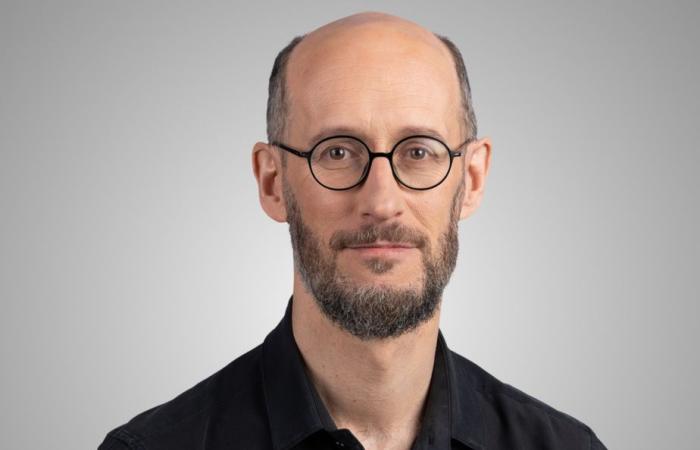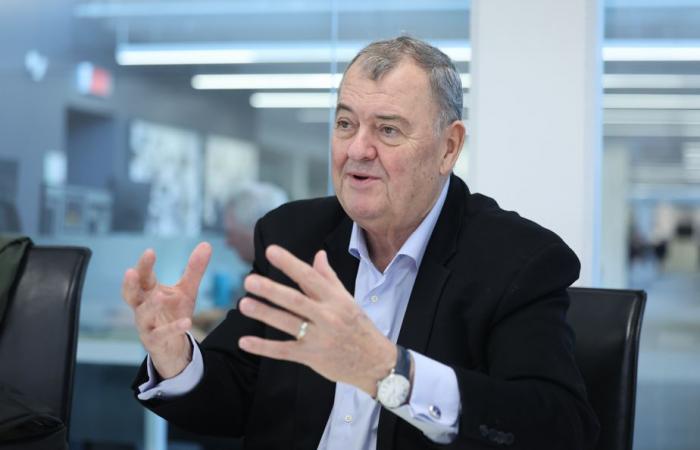Henri-Paul Rousseau is convinced of this. The best approach to a brawling Donald Trump is to show him that Canada is his best ally in becoming more independent from China and more prosperous.
Published yesterday at 7:30 a.m.
The former CEO of the Caisse de dépôt et placement taught economics for a long time, in Quebec and in Paris. He has maintained numerous contacts in economic and financial circles. Today he holds the position of general delegate of Quebec in Paris.
“What I hear from people I know in New York, in Washington and elsewhere, given Donald Trump’s combative personality, is that the more we have a long-term partnership approach, the more we will be heard. »
In other words, embrace your MAGA slogan, but add the word North to do Make North America Great Againargues Mr. Rousseau.
PHOTO MARTIN CHAMBERLAND, LA PRESSE ARCHIVES
The former CEO of the Caisse de dépôt et placement Henri-Paul Rousseau
Certainly, retaliatory measures must be part of the Canadian arsenal, agrees Mr. Rousseau, but Canada would have more interest in touting the assets it brings to the United States to fuel its growth, whether in terms of resources natural resources, or financial, technological or human resources.
“Mr. Trump’s ultimate goal is to make the United States less dependent on China. We must demonstrate that we can help it do it even more quickly by working together,” said Mr. Rousseau, who did not comment on the suggestion of Laurent Ferreira, CEO of the National Bank, to create a Buy Canada Act.
Mr. Rousseau gives the example of aluminum and steel. Since the 2019 agreement with the United States, Canada has adopted a sophisticated traceability system, which allows it to demonstrate that none of these metals from China pass through Canada.
According to Henri-Paul Rousseau, the tariff wall envisaged by Donald Trump is mainly aimed at bringing capital back to the United States to stimulate growth there. This was at the heart of Trump’s speech in Davos, Switzerland: “Come manufacture in the United States, otherwise you will pay customs duties,” he told the audience.
To these tariff threats, Donald Trump combines a wave of deregulation to come in the United States, whether in the environment, in labor, in energy or in consumer protection, the objective of which is to make investment more attractive.
In fact, certain organizations have already promised to inject billions into the United States. On Thursday, January 23, Prince Mohammed bin Salman of Saudi Arabia announced his oil kingdom’s intention to invest 600 billion within 4 years in the United States.
In mid-December, this was the case for the Japanese institution SoftBank (100 billion in 4 years, particularly in artificial intelligence).
“We must quickly bring the debate to the heart of Trump’s overall objective. If we negotiate point by point and industry by industry, it will not necessarily be to our advantage,” says Mr. Rousseau.
Harsh criticism of Miran’s analysis
Furthermore, several economists harshly criticized Stephen Miran’s analysis, which I spoke about in my column on Friday1.
The man who became Trump’s chief economic adviser published a text in November to demonstrate the benefits of high tariffs and a devaluation of the US dollar.
In the Parisian daily life The Worldon January 23, two of the economists cited by Miran to justify his analysis were scathing: imposing high customs tariffs “is a very bad idea”.
-Professors Arnaud Costinot (of MIT) and Andrés Rodríguez-Clare (of Berkeley) judge that high tariffs, for example 20%, risk increasing the value of the American dollar and therefore the price of exports, harming the trade balance. .
Above all, they will necessarily lead to retaliatory measures, particularly from Canada, which will result in losers on both sides of the border.
The optimal rate proposed in their work (20%) served as an educational tool based on the simplest possible economic model, they write, not as a suggestion of economic policy.
“Tariffs are not the powerful tool that will solve all problems, as the new Trump administration believes. Retaining dominance in high-tech sectors, regaining a place in new green sectors and restoring prosperity to struggling regions are key priorities,” they write, judging that tariffs could, at best, play a role auxiliary2.
Other economists jumped at reading some of Miran’s shortcuts. This is the case of Luc Vallée, who was successively chief economist of the Caisse de dépôt, the Laurentian Bank and then the Montreal Economic Institute (IEDM).

PHOTO DAVID BOILY, LA PRESSE ARCHIVES
The economist Luc Vallée
“Absolutely none of the arguments hold water,” according to Mr. Vallée, who also holds a doctorate in economics from MIT.
The current account deficit, he explains, comes as much or more from the enormous deficit of the American government as from consumers.
The United States can make limited gains with Canada without harming itself, believes Luc Vallée, particularly with regard to our military spending, our contribution to NATO and supply management. for dairy products.
“The cost of a tariff war to achieve this would far exceed the anticipated gains in both countries. In the end, the United States would wage a difficult fight with the Chinese without the support of its allies and at enormous costs,” judges Mr. Vallée.
For his part, economist Jean-Pierre Aubry notes that Mr. Trump and his disciples seem to want to create a lot of jobs. However, “the unemployment rate is very low (4%) and we are preparing to send many immigrant workers back to their country of origin. There is a huge inconsistency there.”
Hopefully, Trump’s advisers will be able to soften his stance on tariffs, as an article in New York Times let it be understood3.
1. Read the column “Tariffs and the economy: inside the head of Donald Trump”
2. Read the column of Monde on the prices proposed by Donald Trump (subscription required)
3. Consult the newsletter New York Times on Donald Trump’s tariff policy (in English)








